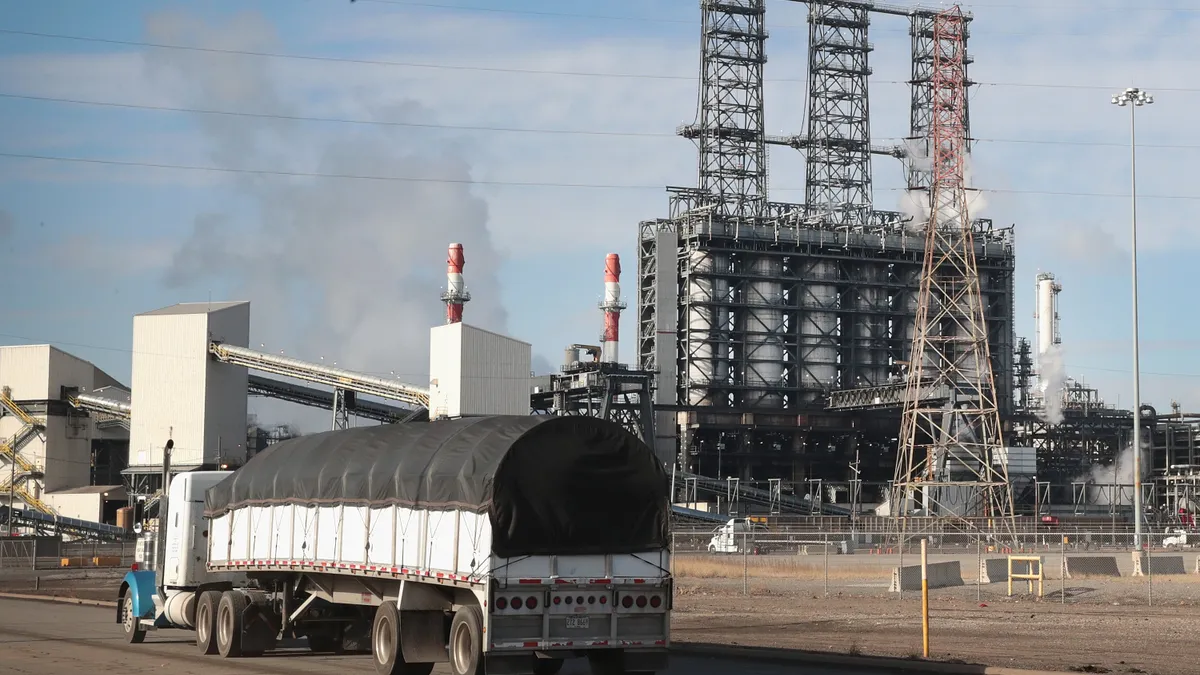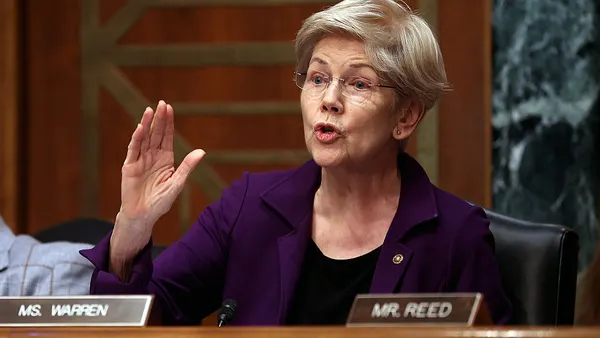The world’s largest banks increased fossil fuel financing by $162.5 billion year-over-year in 2024, reversing course on decreasing investments in the sector — a trend they followed for the past two consecutive years — according to the latest Banking on Climate Chaos report released Tuesday. The release represents the 16th annual report documenting the largest banks’ commitments to financing fossil fuels, with financing for fossil fuel expansion also increasing in 2024 in another reverse of trends.
The report from the Rainforest Alliance Network, Sierra Club, Reclaim Finance and other climate organizations found that the 65 largest global banks committed $869 billion to fossil fuel companies in 2024, as 45 of the covered banks increased their year-over-year fossil fuel financing. The top four U.S. banks — JPMorgan Chase, Bank of America, Citi and Wells Fargo — represented 21% of total global fossil fuel financing accounted for in the report.
RAN Senior Research Strategist Caleb Schwartz, one of the report’s co-authors, called it a “pretty significant year for the report given the reverse in trajectory.
“We're seeing a pretty substantial increase between 2023 and 2024, and we track these annual increases as an indicator of the banks’ commitment,” Schwartz said in an interview with ESG Dive. “Banks are putting money into fossil fuels, they're putting money into fossil fuel expansionism.”
JPMorgan, Bank of America and Citi represented the top three financiers of fossil fuel expansion in 2024 and the top three financiers of fossil fuels overall last year, according to the report. The trio of U.S. banks also are three of the four banks who increased fossil fuel financing by more than $12 billion last year, along with British bank Barclays.
U.S. banks contributed $289 trillion to fossil fuel financing in 2024, accounting for about one-third of the global financing covered in the report. The increased financing came as a number of large U.S. based banks departed from climate coalitions or otherwise walked back climate commitments.
“The retreat by U.S. banks from robust climate commitments is unacceptable, deeply irresponsible, and a clear capitulation to political pressure,” Sierra Club’s Fossil-Free Finance Campaign Senior Strategist Jessye Waxman said in a June 17 release. “Banks must shift away from risky financing and commit to reducing emissions via the companies they finance, with a genuine focus on helping to decarbonize the economy and support the urgent and necessary clean energy transition.”
The report documents lending the 65 largest global banks made to 2,730 companies at the subsidiary level with fossil fuel businesses and 1,800 parent-level companies. The covered banks were given the opportunity to see and confirm their data before its publication, according to the researchers.
RAN Policy Lead Allison Fajans-Turner, also a co-author of the report, told ESG Dive that despite banks adopting policies that prohibit project-level financing for fossil fuels, they often don’t prohibit financing to the companies who own and develop such projects. She said that while the banks have said that funding is to help those companies prepare for the energy transition, “third-party experts have looked at the transition plans that fossil fuel majors have penned and found that they are not credible.”
“Unfortunately, we're seeing banks put forward policies that have really large loopholes in them,” Fajans-Turner said in an interview. “Either banks are not doing their due diligence to look into the credibility and the strength of the transition plans that their clients are presenting to them, or they have decided that they're going to lend to them anyways.”













